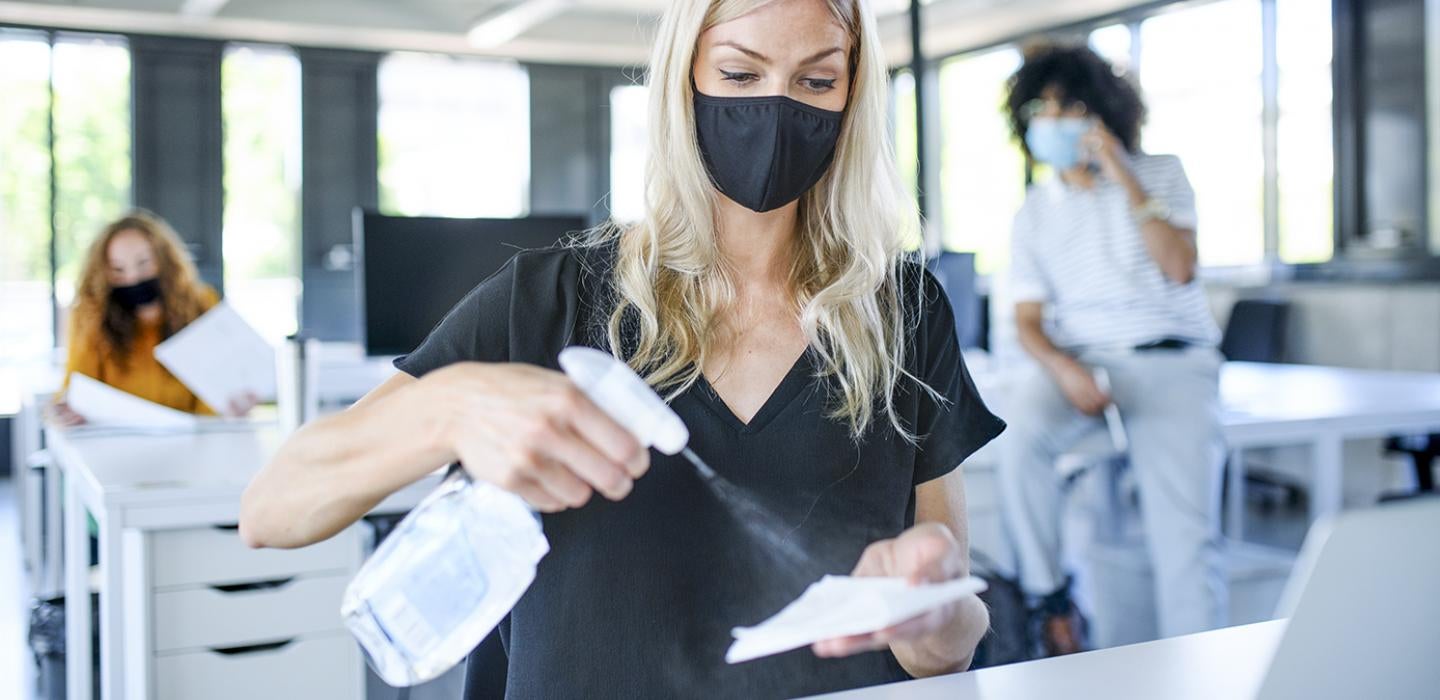
Subscribe to Pittwire Today
Get the most interesting and important stories from the University of Pittsburgh.Since Aug. 10, more than 200 faculty and staff members have volunteered as Pandemic Safety Ambassadors, supporting the health and safety of the Pitt community in response to the pandemic.
There are Pandemic Safety Ambassadors in every unit across the University, and they comprise a vital part of the Pandemic Safety Ambassador Network, aiding in the execution of their units’ operational plan.
Besides modeling health and safety best practices and assisting in answering safety questions for their colleagues, Pandemic Safety Ambassadors serve as a resource to others in their units regarding pandemic mitigation measures, as well as to supervisors and persons performing contact tracing. Additionally, ambassadors support the maintenance of supplies (e.g., face coverings, gloves and other personal protective equipment) and cleaning and disinfection procedures performed in public areas.
“I am deeply appreciative to all who have volunteered to serve in this important role,” said David DeJong, acting senior vice chancellor of Business and Operations and vice chancellor for Human Resources. “The ambassadors’ support of this effort is a critical component to our overall success, and their dedication to the well-being of our colleagues, are yet another example of the ways in which members of the Pitt community support each other.”
Liza Allison, program administrator of the Swanson School of Engineering’s Center for Advanced Manufacturing, was already on the safety committee for the Department of Industrial Engineering before the pandemic and immediately volunteered for the Pandemic Safety Ambassador Network Program.
“I had seen other universities try to bring students back to campus, but I believe that Pitt has developed an exceptional system for slowly transitioning students into housing and bringing everyone who is comfortable back into buildings for research and classes,” Allison said.
Through Zoom calls and a survey of ambassadors conducted in August, many estimated that conformance to mitigation measures, such as wearing face coverings, was going well—particularly among faculty and staff. Nearly 90% of ambassadors reported that faculty and staff compliance with face covering guidelines was “excellent” (95% compliance rate), and 76% said that student compliance was “excellent.”
When asked to list topics of Pitt guidance that seemed confusing, ambassadors reported opportunities for additional clarity of travel policies, COVID-19 health checks and definitions of isolation and quarantine. More in-depth trainings are scheduled to counter confusion and address the identified needs.
“This pandemic has filled many with a sense of uncertainty and a lack of control,” said Allison. “Volunteering with the safety concierge program was a nice way to feel like I was contributing to something bigger than myself, and my little home office, by helping to keep others safe and the University productive.”
For more information about Pandemic Safety Ambassadors—including a role description, sign-up information and training materials—visit Pitt’s Environmental Health & Safety resources web page.


